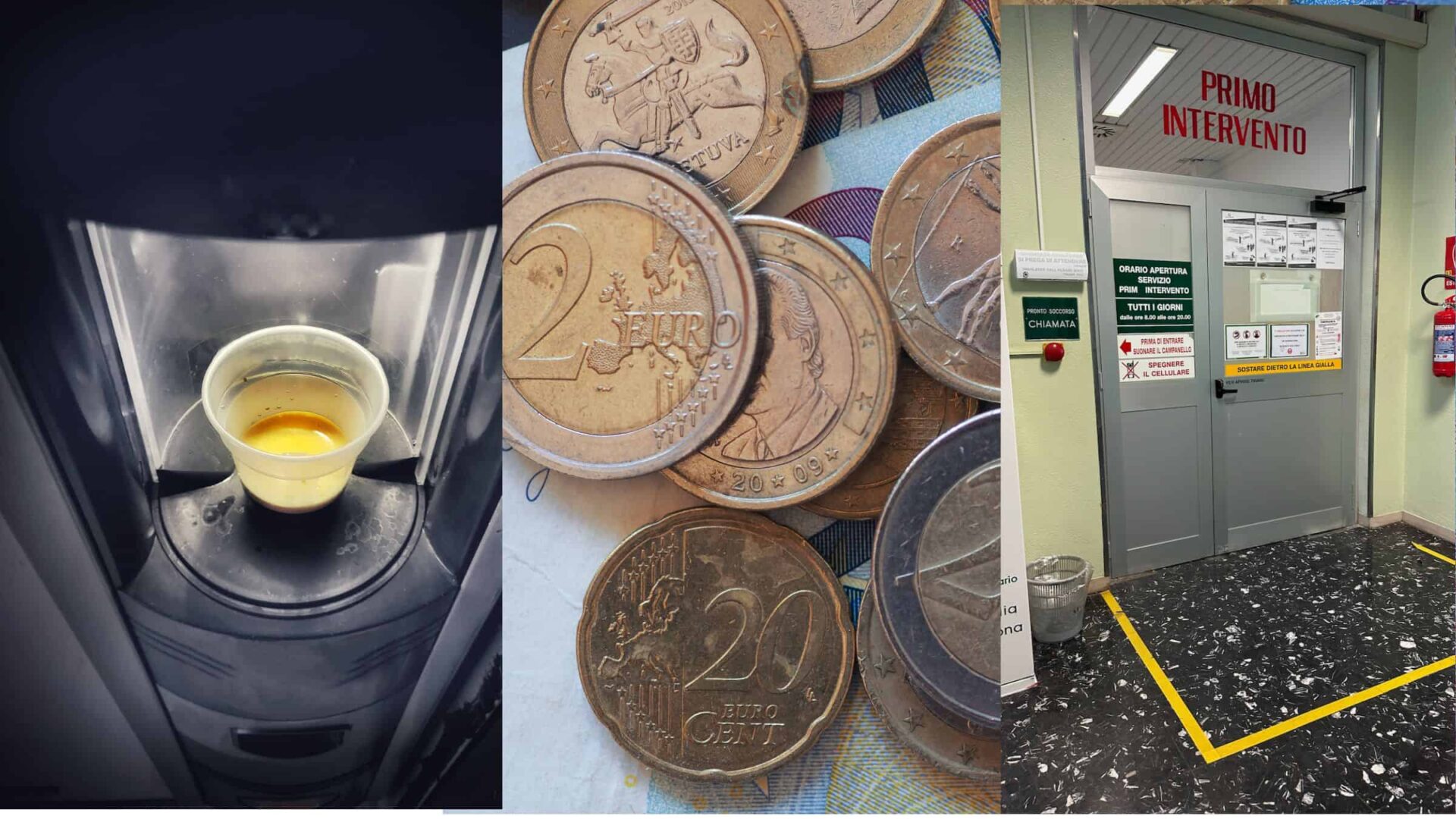tl;dr: In this episode, Mark recounts an unexpected ordeal in an Italian hospital after his mother-in-law broke her arm while on vacation. Faced with difficult choices about surgery and travel, the family navigates a foreign healthcare system. Amid the stress, a seemingly small act of kindness by a hospital staff member leaves a lasting impression, exemplifying universal compassion.
I'm supposed to be away on vacation right now. But, unfortunately, three days into a trip with family and friends, it was cut short when my mother-in-law fell in the airport outside of Milan, Italy — falling and breaking both left forearm bones.
Visiting a public hospital outside of Milan was not part of the plan for the trip, of course. The hospital's emergency room provided some initial care. They took an x-ray and confirmed that the breaks, while not a compound fracture, were pretty bad, with both bones being “displaced.” This would require surgery.
There are apparently a few differences in the care and pain management standards. They set her arm and put a cast on without providing any pain reliever. I wasn't happy to hear that. I'm told that, in Europe, opioids are “reserved for use in hospice and other extremely severe situations.”
It was clear that the trip could not continue (for three of us) with a cast on my mother-in-law's arm, which might have been possible had it been a less severe fracture as we originally hoped.
The choices that Sunday afternoon were:
- Surgery in Italy on Tuesday, with release from the hospital on Thursday and a flight home on Friday
- Fly back to the U.S. on Tuesday and see a surgeon on Wednesday
Neither option was ideal, and this post isn't about the pros and cons of that decision. We flew home on Tuesday. The long day of international travel was sometimes comfortable and, other times, excruciating for her. However, she got into a surgery consult and is scheduled for outpatient surgery before the end of the week.
On a side note, I don't think there will be a bill for the medical care and treatment. It's a public hospital. As they told my wife and mother-in-law, “The billing department is closed on Sunday.” So, we'll see about that. I don't know what the cost of surgery and hospitalization would have been there in Italy. Cost or price was not part of our decision-making process, though.
Not having to pay (we think) for the medical treatment — that's not the kindness I'm referring to in the title of this post.
Hear Mark read this post — subscribe to Lean Blog Audio
There were many, many acts of kindness that we witnessed and experienced along the way, including an Italian who stopped to call for help when the fall had just occurred in the airport, the first responders, and those providing the care.
While my wife more directly helped her mother navigate her care, my job was to sit in the waiting room, working on possible travel rebookings and cancelations and guarding our bags.
I was dragging from the jet lag. I hadn't slept well the night before. I was craving an espresso from one of the vending machines in the Emergency Department waiting area. That would provide some momentary relief from the stress and worry about my mother-in-law's condition.

The machine had a credit card tap-to-pay device. I tried credit cards and my iPhone. Neither worked.
I was starting to put a 5 Euro note into the machine, and just when frustration threatened to take over, a hospital staff member approached me. With a fluent command of English, he kindly informed me,
“The bills never work… only coins.”
In a hurry, he quickly bought his coffee and then turned to me with a warm smile, asking what I wanted.
I extended that 5 Euro note and inquired if he could provide change.
To my surprise, he declined, saying,
“No, I will buy it for you; it's okay.”
As I thanked him, he was already rushing off to get to work.
It was a small act of kindness, just 60 cents in value, but it's a gesture that will remain etched in my memory for a lifetime.
Although I couldn't pinpoint his exact role, what I saw of his involvement in facilitating my mother-in-law's discharge suggested he was likely a nurse, but to me, he was an embodiment of compassion in a foreign land.
He's pictured below in the burgundy scrubs. He provided a vivid reminder that most people are kind and caring, going out of their way to help others when given the chance — or in his case, he seized the opportunity.

Grazie mille!!
What do you think? Please scroll down (or click) to post a comment. Or please share the post with your thoughts on LinkedIn – and follow me or connect with me there.
Did you like this post? Make sure you don't miss a post or podcast — Subscribe to get notified about posts via email daily or weekly.
Check out my latest book, The Mistakes That Make Us: Cultivating a Culture of Learning and Innovation:










Mark: I love the story, and am thinking of your mother in law.
I almost always assume the best in people and can give examples both pro and con but when asked the biggest lesson I have learned in my lean journey it is simply this, and that is that people will amaze you with small gestures that absolutely mean a lot in that moment and those moments will be etched in your memory. whether it is a kindness shown, or a solution shared or in my case a joke.
I used to wear suspenders instead of a belt and a kaizen team all showed up wearing colorful suspenders. I had car trouble that morning and arrived late and failed to notice their gesture until one of them turned lights on his pair that caught my attention. Suffice to say that everyone heard my laugh that day! Best start to an event ever.